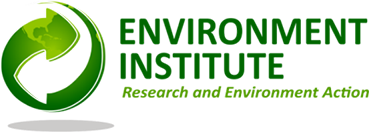The world’s elite are set to descend on Switzerland for an annual gathering of world leaders, business executives, academics and civil society.
This year marks the 50th anniversary of the World Economic Forum, but what is the annual event and how does it have an impact? Euronews takes a look.
What is Davos?
Davos is the Swiss mountain resort where the World Economic Forum holds its annual meeting.
The forum is a non-governmental organisation made up of around 1,000 of the world’s biggest companies and brings together several thousand business and political leaders.
It was founded in 1971 by German economist Klaus Schwab as the European Management Forum, as a way to help European businesses have better corporate management by taking into account more influential actors – including employees or governments.
It was later broadened to a platform for dialogue, adopting its current name in 1987 and being recognised as an international institution in 2015.
This year, there will be at least 600 public speakers at the four-day event which kicks off on January 21st.
What does the forum do?
Traditionally those attending have discussed economic matters, and for the past three decades, the event has also tackled wider global issues. Recent years have seen leaders from China, India and Brazil attend the forum.
Each year has a different theme. The theme for 2020 is sustainable development, under the slogan “Stakeholders for a Cohesive and Sustainable World”.
Among its goals this year: how to respond to climate change and protect biodiversity, remove long-term debt, avoid a “technology war”, empower a billion people with skills over the next decade, and build bridges to resolve conflicts in global hotspots.
The event has historically been a platform for international conversation and negotiation.
In 1988, Greece and Turkey signed a declaration preventing the countries from heading to war. In 1992, Nelson Mandela met the then South African President Frederik de Klerk in their first appearance outside South Africa.
What can we expect this year?
Last year’s forum looked at whether the way economic value is measured needed updating. It didn’t come to a solid conclusion, but pilot work is looking at consumer welfare and well-being as factors as well as the traditional measurement of value creation.
World leaders can also make statements about planned initiatives in their countries.
Teenage eco-warrior Greta Thunberg is due to attend for the second year and will call for an immediate halt to investments in fossil fuels.
“We demand that leaders play their part in putting an end to this madness,” she and other youth climate activists wrote recently.
“People are revolting against the economic ‘elites’ they believe have betrayed them, and our efforts to keep global warming limited to 1.5°C are falling dangerously short,” said Schwab in a statement.
“With the world at such critical crossroads, this year we must develop a ‘Davos Manifesto 2020’ to reimagine the purpose and scorecards for companies and governments.”
Meanwhile, people will be watching as US President Donald Trump – who did not attend Davos due to a government shutdown last year – step out at the event after authorising a drone strike that killed Iranian General Qassem Soleimani.
What do critics say?
To critics, Davos has an image of being an elitist event meant as a networking fest for business leaders.
Economist and Nobel laureate Joseph Stiglitz, who has attended Davos since 1995, wrote in 2018 that despite surging inequality and climate change, CEOs were only concerned with populist backlash against globalisation.
“For the CEOs of Davos, it seems that tax cuts for the rich and their corporations, along with deregulation, is the answer to every country’s problems,” Stiglitz wrote in an opinion piece published by Project Syndicate.
The World Economic Forum has argued that many of the attendees are from non-governmental organisations.
Several human rights organisations attend the meeting and the non-profit Oxfam International has released a report on inequality and global poverty annually to coincide with the event since 2014.
At least 82% of the world’s wealth in 2017 went to the richest 1% of the global population, the group said in their 2018 report.
Source: Euronews.



